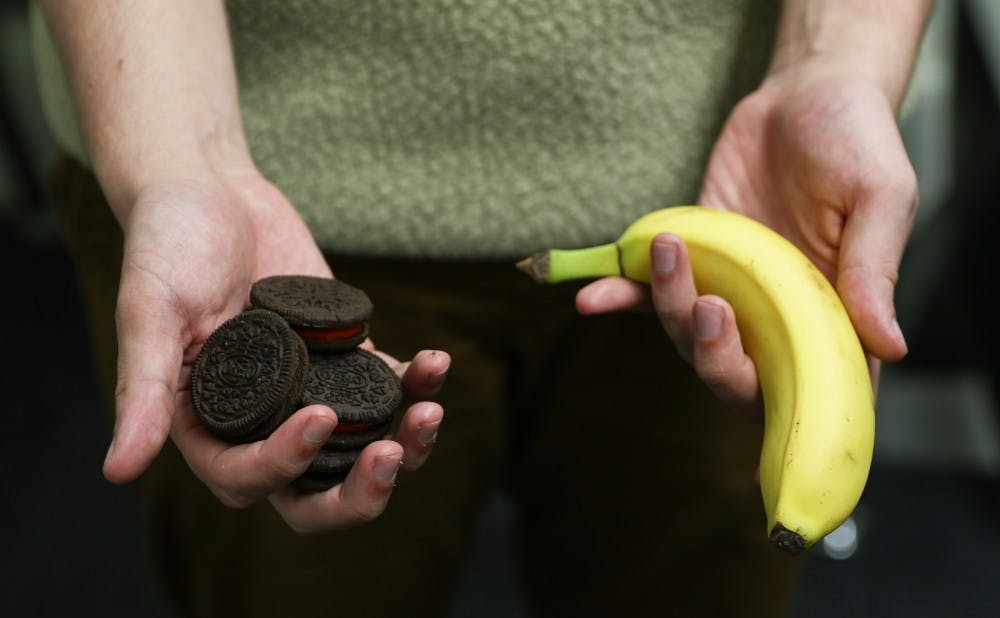We're more likely to eat lettuce if it's near junk food on the shelf, according to a new study by Duke researchers.
Three Duke affiliated-researchers tested choices that hungry participants made between unhealthy and healthy foods when given various combinations of options.
“We show that if you have one virtuous food in amongst tempting options, it is an outlier," said co-author Nicolette Sullivan, a postdoctoral associate in psychology at Duke. "It will draw your attention and you're more likely to choose it."
Researchers first surveyed the 79 participants, asking them to rank certain foods on their taste and perceived health. Unhealthy but tasty foods were referred to as indulgent foods, while healthy but not tasty foods were considered "disciplined," Sullivan explained, “because it required discipline to choose it.”
When a choice between Oreos and canned salmon was presented to the participants, nearly all selected the Oreos.
However, when participants were instructed to choose between either Oreos and canned salmon or Oreos and Snickers, most chose the pairing that included a healthy option. By tracking eye movements, researchers noted that participants spent more time looking at the healthy option when it was surrounded by indulgent choices than when it was in a one-to-one comparison to the same sweet treat.
"Adding additional options to a choice bed might change people’s choices, called context effects,” Sullivan said.
Now, the team is working to implement this research into grocery stores in hopes of nudging consumers towards making healthier choices.
“If you have the candy bar aisle and you put a basket of apples in the middle, people will say ‘that’s weird.’ They'll look at it more and they're more likely to choose it,” Sullivan said.
Currently, grocery stores are very segregated, with indulgent and disciplined options in separate parts of the store. This is especially an issue in “food deserts” where fresh options are hard to come by.
“When you stick healthy options in a food desert, people just walk right past them, they don’t even look at them,” Sullivan said.
Next steps in this research include using fMRI machines to monitor the participant’s brain activity while making such decisions.
By changing the context of the disciplined foods, Sullivan wonders whether they are changing people's food preferences or simply enabling a self-control network in the brain.
If the brain feels rewarded by selecting the healthy option, Sullivan knows the latter is succeeding.
“One of the challenges is that it's hard to change a person," Sullivan said. "With this research, we’re trying to say that we don't always need to change [the] decision maker, but if we change the context of their choice we can get them to make healthy decisions, and they probably don't even know they're doing it.”
Get The Chronicle straight to your inbox
Signup for our weekly newsletter. Cancel at any time.

Maria Morrison is a Trinity senior and a digital strategy director for The Chronicle's 117th volume. She was previously managing editor for Volume 116.

